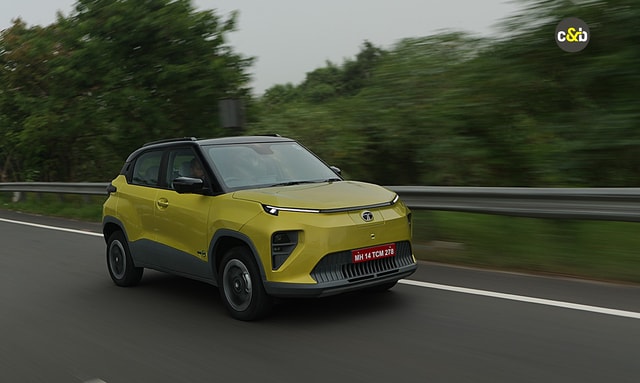A Year After Arrest, Ghosn Seeks Trial Date, Access To Evidence

A year after his arrest, Nissan ex-Chairman Carlos Ghosn remains stuck in Tokyo under stringent bail conditions and without a trial date as he seeks access to a trove of Nissan emails and other evidence to fight charges of financial misconduct. His lawyers have asked a court to grant access to 6,000 pieces of evidence collected from Nissan Motor Co Ltd such as electronic communications, which they say is crucial for a fair trial, showed an Oct. 4 court filing seen by Reuters.
The once-feted executive has spent 129 days in detention since his arrest shortly after his private jet touched down at a Tokyo airport on Nov. 19, 2018. He faces four charges - which he denies - including hiding income and enriching himself through payments to dealerships in the Middle East.
Nissan sacked Ghosn, saying its internal investigations revealed misconduct ranging from understating his salary while he was its chief executive, and transferring $5 million of Nissan funds to an account in which he had an interest.
An earlier court ruling allowed prosecutors to hand back evidence to Nissan during pretrial wrangling over witnesses and evidence similar to the U. S. discovery process.
If prosecutors are "given the freedom to unilaterally delete the collected evidence and return it to relevant parties, this is equivalent to granting the investigative agencies the right to destroy evidence," showed the filing to the Tokyo District Court.
The lawyers also asked the court to rescind the earlier ruling, saying some evidence could be erased by Nissan to protect confidential business information.
They argued the "ruling deprives Mr. Ghosn of his right to receive a fair public trial by an impartial court", as it enabled prosecutors to view and use the evidence and withhold it from the defence.
Prosecutors are not required to hand over all evidence they or the police gather during investigations unless ordered by the court, unlike in the U.S. discovery process where prosecutors and defence lawyers disclose the evidence they intend to present in court. A spokeswoman for the Tokyo prosecutors' office said the office could not comment on individual cases. A Nissan spokeswoman declined to comment.
Ghosn's lawyers have also asked the court to dismiss all charges against him, accusing prosecutors of colluding with government officials and Nissan executives to oust him to block any takeover of the automaker by French alliance partner Renault SA, of which Ghosn was also chairman.
"Tokyo prosecutors have repeatedly and systematically denied Mr. Ghosn fundamental rights of due process and turned the presumption of innocence on its head," Ghosn's legal team said in a statement to mark the anniversary of his arrest.
As well as a defence team of four attorneys in Japan led by Junichiro Hironaka, known as the Razor, Ghosn hired nine other lawyers in Europe and the United States to help prepare for a trial they estimate may not start until April at the earliest.
In Japan, suspects who deny charges brought against them are often detained for long periods and subject to intense questioning without a lawyer present, a system some observers have criticised as "hostage justice".
Japan's prosecutors have repeatedly dismissed that criticism, saying Ghosn has been treated well and in accordance with the law.
Latest News
 car&bike Team | Mar 2, 2026Yezdi Roadster Red Wolf Launched at Rs 2.10 LakhYezdi has expanded the Roadster line-up with a new Red Wolf colourway, now the most premium shade in the range.1 min read
car&bike Team | Mar 2, 2026Yezdi Roadster Red Wolf Launched at Rs 2.10 LakhYezdi has expanded the Roadster line-up with a new Red Wolf colourway, now the most premium shade in the range.1 min read car&bike Team | Mar 2, 2026BMW M2 M Performance Kit Revealed: New Aero Package, Upgraded Suspension, Lighter ExhaustBMW has introduced a Performance kit for the M2, which includes a host of aerodynamic components.2 mins read
car&bike Team | Mar 2, 2026BMW M2 M Performance Kit Revealed: New Aero Package, Upgraded Suspension, Lighter ExhaustBMW has introduced a Performance kit for the M2, which includes a host of aerodynamic components.2 mins read car&bike Team | Mar 2, 2026Two-Wheeler Sales February 2026: Hero MotoCorp, TVS, Honda, Bajaj Auto Report Positive GrowthMajor brands have shown remarkable sales in the second month of 2026.3 mins read
car&bike Team | Mar 2, 2026Two-Wheeler Sales February 2026: Hero MotoCorp, TVS, Honda, Bajaj Auto Report Positive GrowthMajor brands have shown remarkable sales in the second month of 2026.3 mins read car&bike Team | Mar 2, 2026Tata Motors To Offer Mobile Vans For Doorstep Charging In Delhi NCRThese vans will benefit EV owners who do not have a fixed charging spot or do frequent relocations.1 min read
car&bike Team | Mar 2, 2026Tata Motors To Offer Mobile Vans For Doorstep Charging In Delhi NCRThese vans will benefit EV owners who do not have a fixed charging spot or do frequent relocations.1 min read Bilal Firfiray | Mar 2, 2026New Mercedes-Benz V-Class Vs Toyota Vellfire: The Luxury Van ShowdownNew V-Class is here after a long hiatus. And it’s aiming squarely at the Toyota Vellfire in the luxury MPV space. So let us break down design, comfort, features, powertrains and real-world usability to help you choose the right one.5 mins read
Bilal Firfiray | Mar 2, 2026New Mercedes-Benz V-Class Vs Toyota Vellfire: The Luxury Van ShowdownNew V-Class is here after a long hiatus. And it’s aiming squarely at the Toyota Vellfire in the luxury MPV space. So let us break down design, comfort, features, powertrains and real-world usability to help you choose the right one.5 mins read Jafar Rizvi | Mar 2, 2026Yamaha XSR 155 Prices Hiked; New Colour IntroducedPrices for the XSR 155 now range between Rs 1.50 lakh and Rs 1.59 lakh (ex-showroom).1 min read
Jafar Rizvi | Mar 2, 2026Yamaha XSR 155 Prices Hiked; New Colour IntroducedPrices for the XSR 155 now range between Rs 1.50 lakh and Rs 1.59 lakh (ex-showroom).1 min read
 Bilal Firfiray | Feb 28, 2026Tata Punch EV Facelift Review: More Range, More Sense, Less MoneyThe Tata Punch EV facelift gets a bigger 40 kWh battery, faster 60 kW DC charging, improved thermal management, and better real-world range, and all of that at a lower introductory price. But does it become a more complete package now?6 mins read
Bilal Firfiray | Feb 28, 2026Tata Punch EV Facelift Review: More Range, More Sense, Less MoneyThe Tata Punch EV facelift gets a bigger 40 kWh battery, faster 60 kW DC charging, improved thermal management, and better real-world range, and all of that at a lower introductory price. But does it become a more complete package now?6 mins read Preetam Bora | Feb 24, 2026Hero Destini 110 Review: Simplicity, RefinedThe Hero Destini 110 is a no-nonsense commuter that is simple, comfortable and above all, fuel efficient. In 2026, when buyers are spoilt for choice, is it good enough to consider?1 min read
Preetam Bora | Feb 24, 2026Hero Destini 110 Review: Simplicity, RefinedThe Hero Destini 110 is a no-nonsense commuter that is simple, comfortable and above all, fuel efficient. In 2026, when buyers are spoilt for choice, is it good enough to consider?1 min read Preetam Bora | Feb 23, 2026TVS Apache RTX Road Test Review: Redefining the Entry-Level ADVAfter spending some time with the TVS Apache RTX in traffic, the daily commute, as well as on open highways, one thing becomes clear: the RTX is trying to redefine the entry-level ADV segment. But is it without fault?1 min read
Preetam Bora | Feb 23, 2026TVS Apache RTX Road Test Review: Redefining the Entry-Level ADVAfter spending some time with the TVS Apache RTX in traffic, the daily commute, as well as on open highways, one thing becomes clear: the RTX is trying to redefine the entry-level ADV segment. But is it without fault?1 min read Girish Karkera | Feb 20, 2026Road Test: 2025 VinFast VF7 AWD Sky InfinityFlagship all-electric SUV from the Vietnamese car maker gets most of the basics right.1 min read
Girish Karkera | Feb 20, 2026Road Test: 2025 VinFast VF7 AWD Sky InfinityFlagship all-electric SUV from the Vietnamese car maker gets most of the basics right.1 min read Jaiveer Mehra | Feb 18, 2026New BMW X3 30 Vs Mercedes-Benz GLC 300: Midsize Luxury SUV FaceoffWith the new X3 30, BMW has a direct competitor to the petrol GLC 300, but which is the luxury SUV for you?1 min read
Jaiveer Mehra | Feb 18, 2026New BMW X3 30 Vs Mercedes-Benz GLC 300: Midsize Luxury SUV FaceoffWith the new X3 30, BMW has a direct competitor to the petrol GLC 300, but which is the luxury SUV for you?1 min read

























































































































